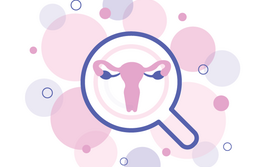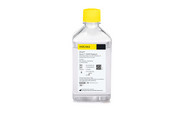Open Innovation Against Epilepsy
Angelini Pharma launches crowdsourcing project to tackle drug-resistant epilepsy

Italy-based Angelini Pharma has challenged the crowdsourcing community website Wazoku to pool its collective talent and identify pharmaceutical-based solutions for drug-resistant epilepsy symptoms, including seizures. Wazoku was launched in 2011 with a big mission: to prove that human ingenuity and collaboration can overcome any scientific challenge. It has already been used by various pharma companies, including GSK and AstraZeneca, and even NASA.
Angelini’s Chief Scientific Officer Rafal Kaminski said: “Through this open innovation challenge, we expect to identify innovative digital solutions with the potential to improve the identification of new targets in drug-resistant epilepsy that can be validated preclinically. This would help us build our early-stage pipeline, thus supporting our efforts in brain health.”
Innovation Consultant at Wazoku Dino Ribic agreed: “Whether it’s helping to manage an aging population, tackling mental health, addressing inequity in access to healthcare and medicine or combatting the rise of infectious diseases, open innovation is increasingly invaluable to the pharmaceutical sector and the wider world. Progressive companies like Angelini Pharma have recognized the benefits of collective intelligence, and I can’t wait to see what the Wazoku Crowd delivers in this instance.”
The project has set a number of focuses, including the diversity of genetic architectures, the variety of targets and pathways potentially involved in different subtypes of epilepsy, and the limited amount of human epilepsy transcriptome and multiomics data.
This is a Prize Challenge, so Angelini and Wazoku have requested written proposals. In submitting a proposal, any challenger with a credible solution grants a royalty-free, perpetual, and non-exclusive license to Angelini for the use of the information included. With a total payout of up to $25,000, citizen scientists are likely to be as tempted to the prize money as they are to the challenge of coming up with a practical and innovative solution.
Open Innovation has proven successful in generating innovative solutions in the pharmaceutical sector before, whether through accelerating drug discovery and development – as in the case of AstraZeneca’s call for ideas in its molecular glue drug discovery project (1) – or by navigating operational challenges, such as costs and recruitment, as highlighted by Janssen Pharmaceuticals (2).
- Molecular Glue Drug Discovery Computational Model. Available at: https://bit.ly/3wXLwty
- J Robaczewska et al, “Applying open innovation strategies in the context of a regional innovation ecosystem: The case of Janssen Pharmaceuticals, Global Transitions (2019). DOI: 10.1016/j.glt.2019.05.001
Following a Bachelor’s degree in English Literature and a Master’s in Creative Writing, I entered the world of publishing as a proofreader, working my way up to editor. The career so far has taken me to some amazing places, and I’m excited to see where I can go with Texere and The Medicine Maker.


















